Comprehensive Support Systems for Lasting Sobriety

Addiction recovery is a complex journey that necessitates a multifaceted approach. Central to this process are counseling and therapy, which provide vital emotional, psychological, and behavioral support. These therapeutic interventions help individuals explore the root causes of their addiction, develop personalized recovery plans, and build resilience against relapse. By fostering a safe environment for self-exploration and growth, counseling and therapy empower individuals to move towards sustained sobriety, making them indispensable components of long-term recovery strategies.
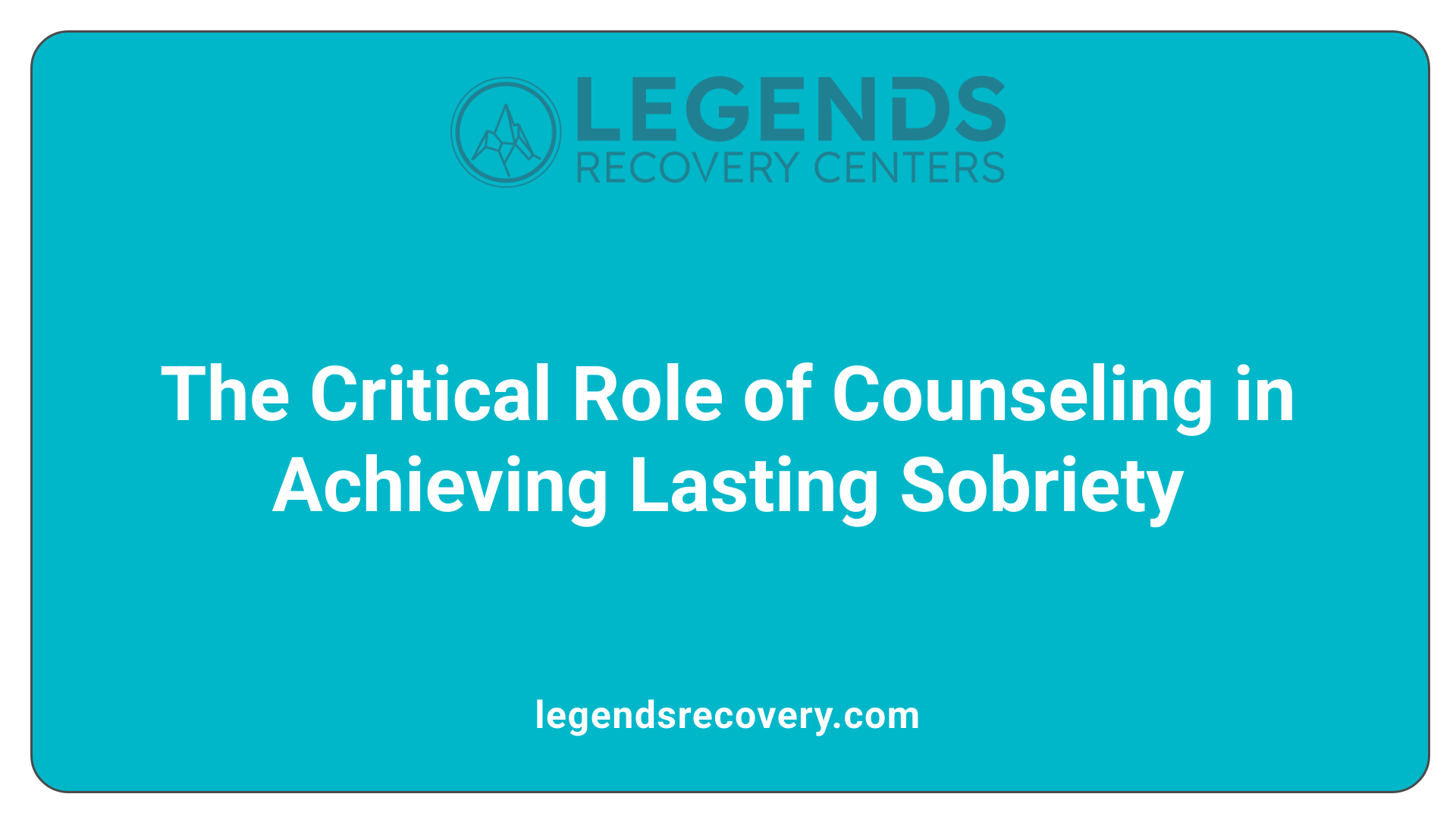
Counseling plays a critical role in addiction recovery because it creates a safe and supportive space where individuals can openly explore their feelings, thoughts, and behaviors connected to their substance use. This environment encourages honest self-sharing, which is necessary for healing.
Through evidence-based approaches like cognitive-behavioral therapy (CBT) and motivational interviewing, counselors help clients identify the root causes of their addiction, such as trauma, emotional pain, or mental health issues. These therapies also teach practical coping skills to manage triggers, cravings, and stressors effectively.
Counseling goes beyond addressing just the physical aspect of addiction by focusing on psychological and emotional health. It supports the development of resilience, self-esteem, and healthy habits, which are vital for long-term recovery.
In addition, counselors work to develop personalized treatment plans that integrate holistic approaches, medication when appropriate, family involvement, and community support groups. This comprehensive strategy ensures that emotional and psychological needs are met alongside physiological treatment.
Overall, counseling is indispensable in guiding individuals toward sustained sobriety by helping them understand underlying issues, reinforce motivation, and foster personal growth. It not only targets immediate challenges but also builds skills for a healthier, substance-free future.
These approaches are often combined and tailored to individual needs, optimizing treatment outcomes.
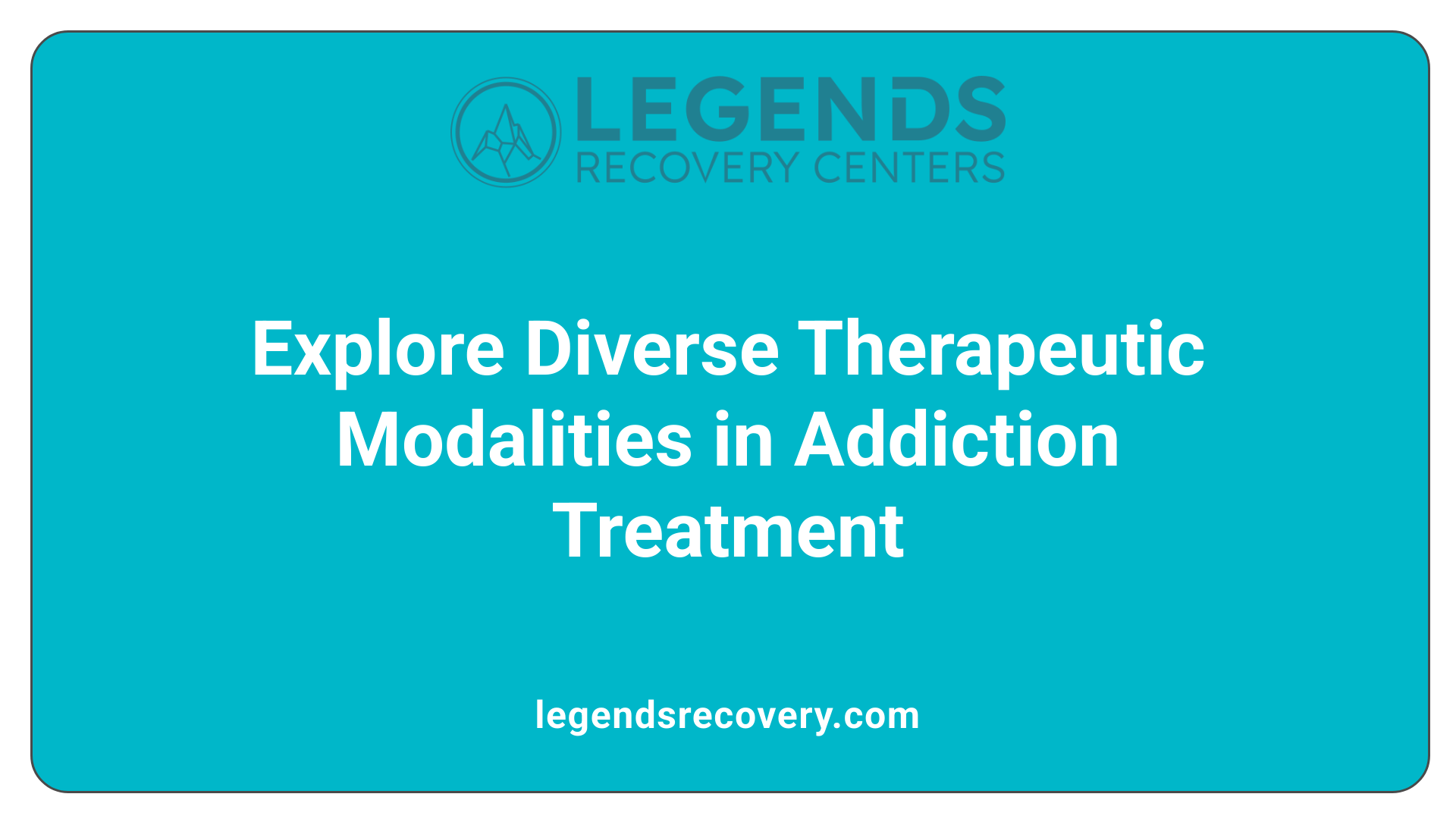
Addiction treatment offers a wide range of counseling options tailored to meet individual needs. These include individual therapy, group counseling, and family therapy, all aiming to address different aspects of addiction and recovery.
Evidence-based therapies like cognitive-behavioral therapy (CBT) are widely used to help individuals identify and change negative thought patterns and behaviors linked to substance use. CBT is supported by research from the National Institute on Drug Abuse and Psychology Today for its effectiveness in treating various substance use disorders.
Dialectical behavior therapy (DBT) focuses on emotion regulation, distress tolerance, and mindfulness strategies to help clients manage intense feelings and promote sobriety. Resources such as Behavioral Tech provide training and tools to implement DBT in addiction recovery.
Motivational enhancement therapy, including motivational interviewing, helps individuals explore ambivalence about change and boosts their motivation for recovery. This approach encourages patients to articulate their reasons for quitting substances, fostering intrinsic motivation.
Contingency management involves providing tangible rewards for positive behaviors like abstinence, reinforcing healthy habits and demonstrating strong evidence of success.
Family therapy is essential for improving communication, addressing relational dynamics, and involving loved ones in the recovery process. It helps rebuild trust and understanding within the family system.
In some cases, medication-assisted treatment (MAT), combined with counseling, supports recovery from substances like opioids and alcohol. Support groups such as Narcotics Anonymous or SMART Recovery offer ongoing community support and accountability.
Overall, addiction treatment is a personalized process. It often combines multiple therapies, medications, and social support systems to foster long-term sobriety and well-being.
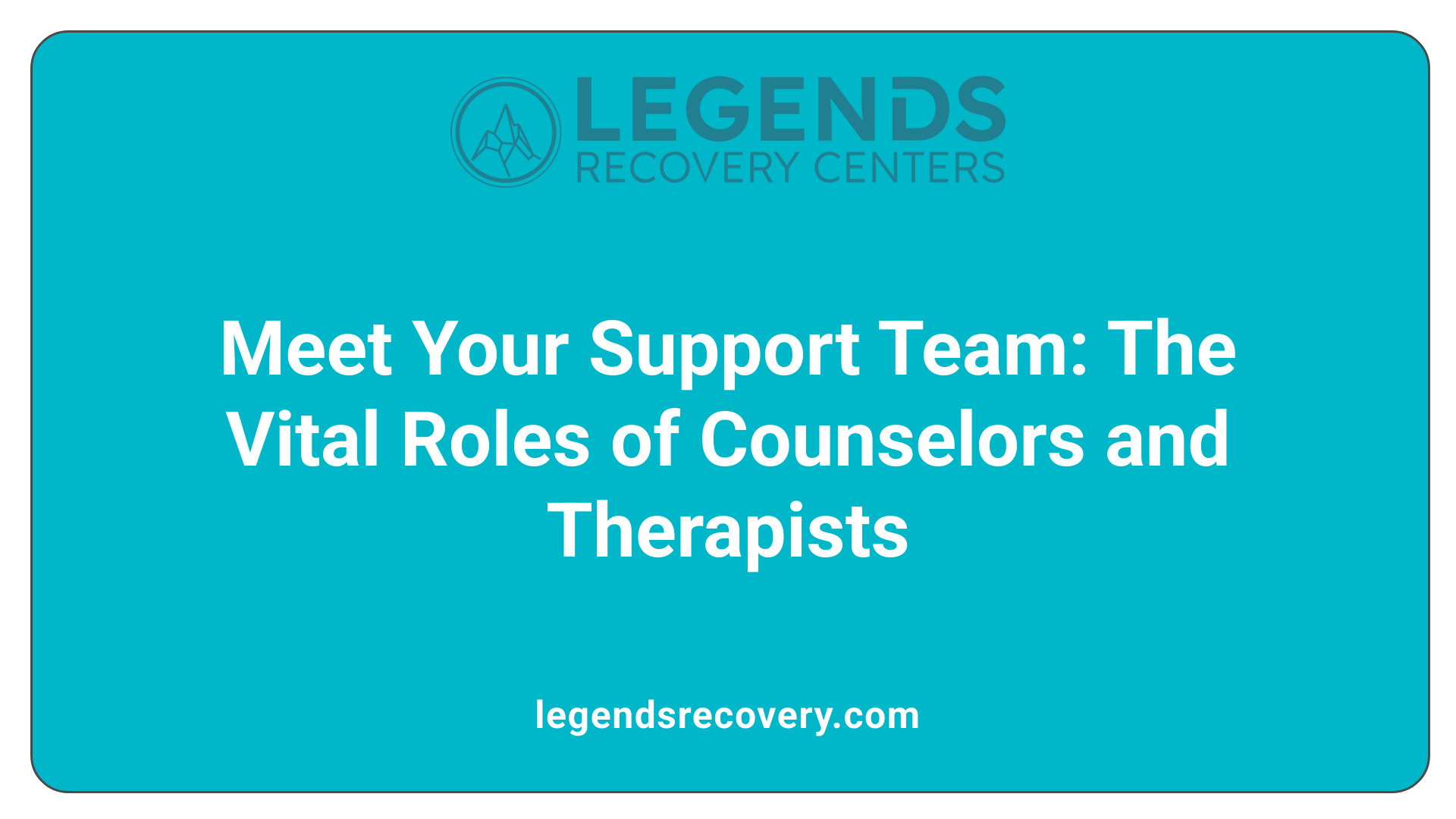
Addiction counselors and therapists serve a crucial function in helping individuals recover from substance use and behavioral addictions. They evaluate clients through comprehensive assessments to understand their history, triggers, and underlying mental health issues. Once evaluated, they develop personalized treatment plans tailored to each person's unique needs, incorporating evidence-based techniques such as cognitive-behavioral therapy (CBT), motivational interviewing, and family therapy.
These professionals provide a supportive, unbiased environment where clients can openly explore the root causes of their addiction, address emotional and psychological issues, and learn healthier coping strategies. They work to build a therapeutic alliance based on trust, collaboration, and empathy, which is essential for effective treatment.
In addition to individual care, addiction counselors coordinate with families, support groups like Alcoholics Anonymous (AA), and community resources. This integrated approach strengthens the support network around the client, increasing the chances of sustained recovery.
A core component of their role involves relapse prevention. Counselors identify potential warning signs, help clients recognize and manage triggers, and develop tailored relapse prevention plans. They also provide ongoing education about addiction, mental health, and lifestyle changes necessary for long-term sobriety.
Ultimately, addiction therapists aim to guide individuals toward recovery, improved mental health, and a healthier lifestyle. Through evidence-based therapies and ongoing support, they support clients in their journey to lasting sobriety and well-being.
Personalized treatment plans are central to successful addiction therapy. They consider the individual's stage of change, mental health status, social environment, and personal goals. These plans often include a combination of individual counseling, group therapy, family involvement, and therapeutic activities like mindfulness or art therapy.
Having a tailored approach allows therapy to be more effective, addressing specific issues such as trauma, low self-esteem, or co-occurring disorders. Moreover, structured plans include relapse prevention strategies, coping skills development, and resource referrals, fostering resilience and long-term recovery.
Relapse prevention involves several techniques. Counselors help clients identify personal triggers—such as stress, environmental cues, or emotional states—and develop strategies to manage them. They also craft coping mechanisms, including mindfulness, stress management, and social support engagement.
Creating a personalized relapse prevention plan includes setting realistic goals, establishing ongoing support networks, and recognizing early warning signs of relapse. Follow-up sessions reinforce these strategies, helping clients stay committed to sobriety.
Family support and education are vital for sustainable recovery. Counselors work with loved ones to enhance communication, rebuild trust, and educate them about addiction processes. Family therapy sessions aim to address dysfunctional dynamics and promote a supportive environment conducive to recovery.
Counselors also refer families to mutual help groups or educational programs, equipping them with the knowledge to maintain a supportive role.
Addiction counselors typically attain a master's degree in addiction counseling or related fields, along with passing licensure exams such as the National Counselor Examination (NCE). They are required to complete supervised practice hours and engage in continuing education.
The professionis growing, with a 22% projected increase in employment from 2021 to 2031, reflecting the high demand for qualified professionals. Certification and licensure ensure that counselors adhere to ethical standards, maintain skills, and deliver high-quality, evidence-based care.
| Area of Focus | Description | Additional Details |
|---|---|---|
| Evaluation | Comprehensive assessment of client history and mental health | Guides treatment plan development |
| Treatment Planning | Creating personalized plans with evidence-based approaches | Addresses individual needs |
| Relapse Prevention | Developing strategies to manage triggers and maintain sobriety | Includes coping skills and support networks |
| Family Involvement | Educating and supporting families | Enhances recovery environment |
| Qualifications | Master's degree, licensure, continuing education | Ensures professional standards |
Effective therapy and counseling integrate these roles to support individuals on their path to recovery, emphasizing personalized care, ongoing support, and community integration.
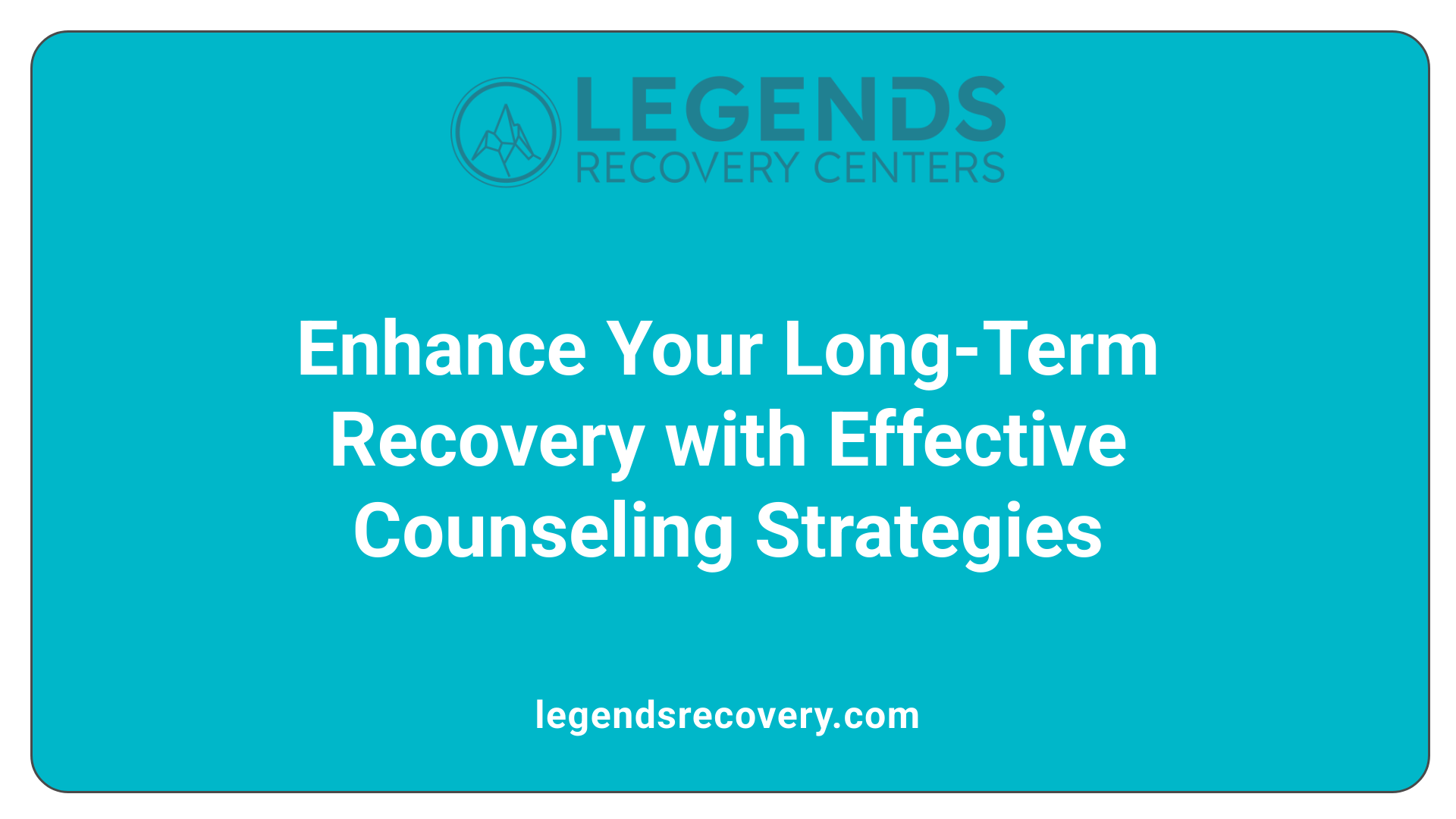
Therapeutic counseling is fundamental in helping individuals sustain their sobriety after initial treatment. It provides the necessary support to understand and manage the emotional, psychological, and behavioral factors that may trigger relapse.
One of the main ways therapy aids recovery is through teaching practical skills for handling cravings and stress. Techniques such as cognitive-behavioral therapy (CBT) help clients identify negative thought patterns and develop healthier responses. Mindfulness-based approaches also teach individuals to stay present and reduce emotional turmoil that could lead to substance use.
Developing a personalized relapse prevention plan is another critical aspect. Counselors guide clients in recognizing high-risk situations, understanding personal triggers, and creating strategies to avoid or cope with these challenges.
Building support networks through group therapy and family counseling fosters a sense of community and accountability. Sharing experiences and receiving encouragement from peers helps combat feelings of isolation and reinforces commitment to sobriety.
Addressing co-occurring mental health conditions, such as depression or anxiety, is essential for comprehensive care. Therapy helps manage these issues alongside addiction recovery, reducing the risk of relapse associated with untreated mental health disorders.
Ongoing counseling and aftercare services are vital to reinforce the skills learned during initial treatment. They support the continuous development of coping mechanisms and adaptive routines necessary for a resilient, long-term recovery process.
In summary, therapy equips individuals with the emotional resilience, practical tools, and support systems that promote lasting sobriety and effectively prevent relapse.
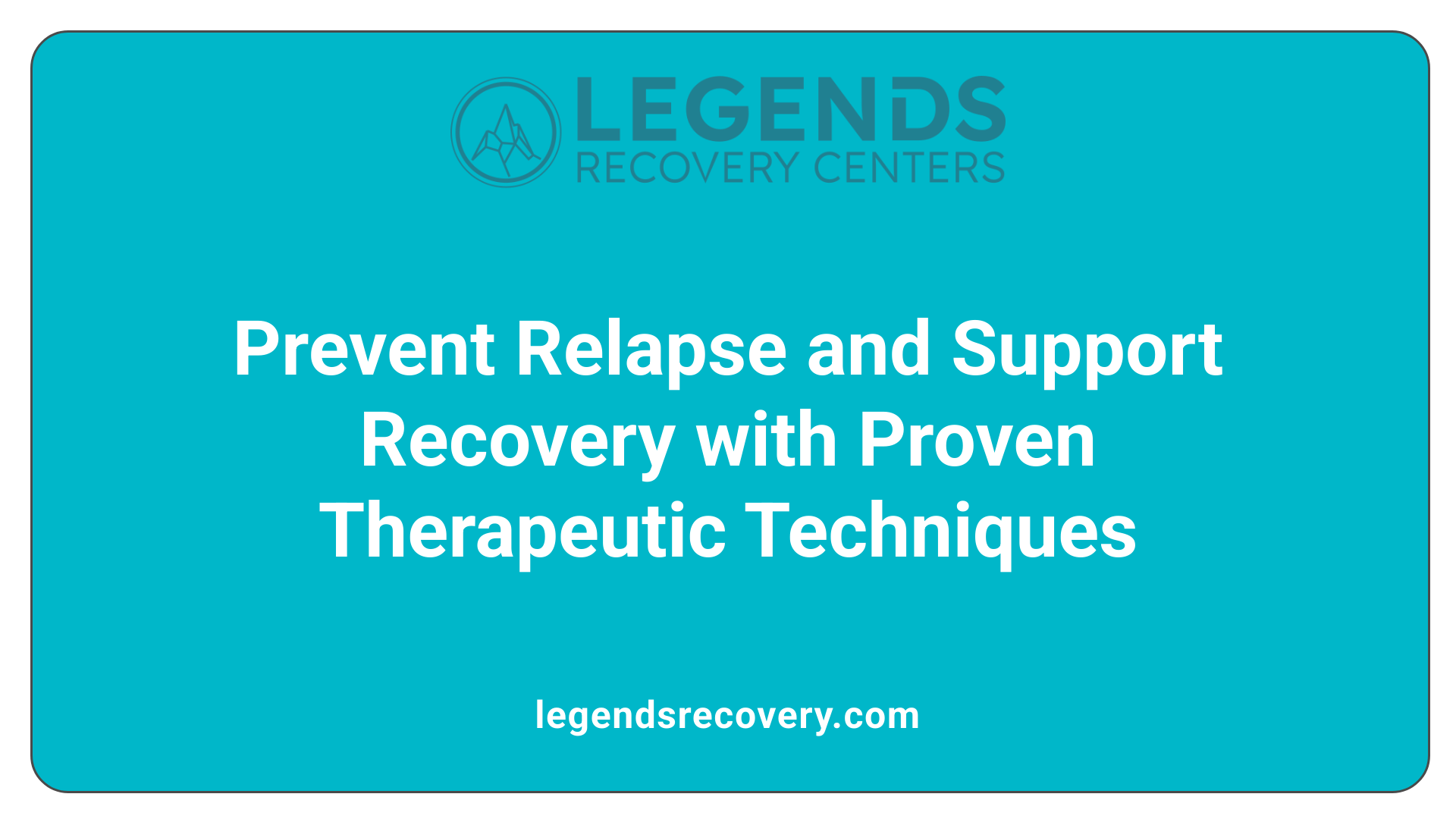
Therapeutic intervention plays a vital role in helping individuals maintain sobriety and avoid relapse. It primarily works by addressing the psychological, behavioral, and emotional factors that contribute to substance use. Evidence-based techniques such as Cognitive Behavioral Therapy (CBT) help individuals recognize negative thought patterns and develop healthier coping mechanisms.
To manage high-risk situations, therapy assists in identifying triggers like stress, social pressures, or emotional distress. Developing tailored relapse prevention plans enables individuals to handle these scenarios effectively before they lead to substance use.
Enhancing self-efficacy and resilience is another core aspect of therapy. Building confidence in one's ability to stay sober helps individuals navigate temptations and setbacks. Support groups, monitoring tools, and sometimes medication further support recovery by reducing cravings and alerting to early signs of relapse.
Understanding the stages of relapse allows therapists to intervene proactively. By addressing emotional, mental, and physical risks right at the onset, therapy creates a comprehensive safety net.
Beyond traditional talk therapy, holistic approaches like mindfulness, stress management, and wellness practices contribute to overall well-being. These strategies help individuals manage cravings, improve emotional stability, and foster a positive outlook.
In summary, therapeutic strategies for relapse prevention emphasize empowering individuals with skills, fostering supportive communities, and promoting a balanced approach to mind and body health. Such comprehensive care significantly increases the likelihood of sustained recovery and long-term sobriety.
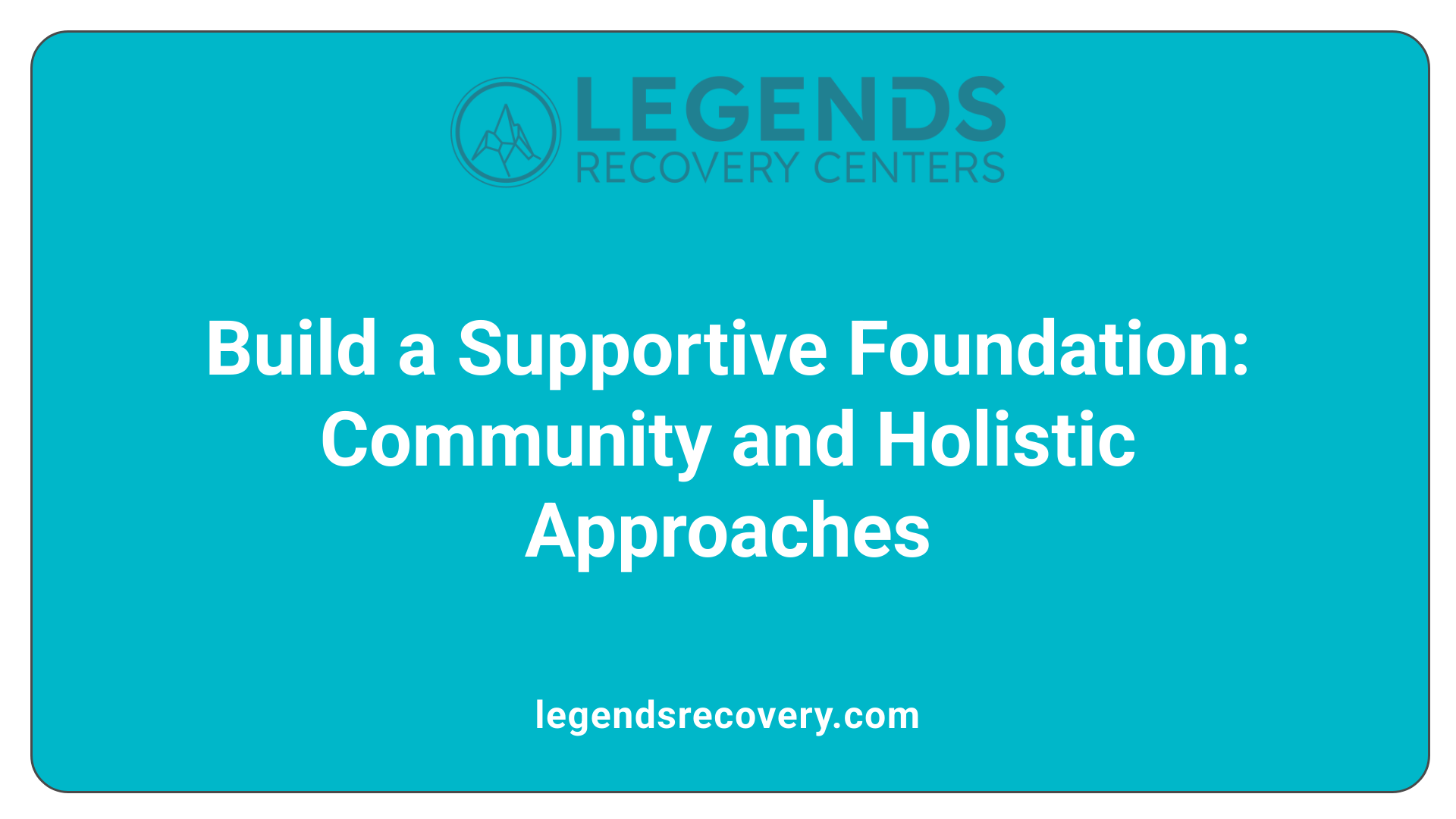
Effective addiction recovery often involves addressing various aspects of a person's life. Combining health support with stable housing, meaningful activities, and a supportive community creates a strong foundation. Access to proper healthcare and mental health services helps manage co-occurring disorders and physical health issues. Stable housing provides safety and stability, which are essential for recovery. Engaging in purposeful activities like education, employment, or volunteering helps rebuild self-esteem and a sense of belonging.
Support groups like Alcoholics Anonymous (AA) and Narcotics Anonymous (NA) play vital roles in ongoing recovery. These communities offer accountability, shared experiences, and spiritual growth opportunities. Recovery cafes, social clubs, and local nonprofits also create safe spaces for connection. Digital platforms have expanded access, allowing individuals to participate in online meetings and forums. Community organizations often provide education, job training, and housing assistance, fostering long-term resilience.
Holistic therapies complement traditional treatments by promoting overall well-being. Mindfulness practices such as meditation help manage stress and cravings. Creative therapies like art and music allow emotional expression and trauma processing. Spiritual practices can foster inner peace and purpose, supporting motivation for sobriety. These approaches nurture the mind, body, and spirit, enhancing emotional resilience and reducing relapse risks.
Technological advances have made recovery support more accessible. Virtual meetings increase participation for those with mobility or transportation issues. Online resource directories help find local services, therapists, and peer groups. Mobile apps offer reminders, motivation, and coping tools. Community-based initiatives focus on inclusive recovery environments, emphasizing that support is available everywhere. Connecting with these resources helps individuals maintain motivation, access help quickly, and build a sustainable support network.
| Aspect | Resources/Approaches | Benefits |
|---|---|---|
| Integration of life areas | Healthcare, housing programs, purposeful activities | Stability, self-esteem, comprehensive wellness |
| Community support | AA, NA, online groups, local nonprofits | Accountability, shared experience, motivation |
| Holistic therapies | Mindfulness, art/music therapy, spiritual practices | Emotional resilience, trauma healing |
| Digital resources | Apps, virtual meetings, online directories | Accessibility, instant support, ongoing engagement |
A holistic and community-based approach supports individuals not just in overcoming addiction but in building a balanced, resilient, and fulfilling life beyond recovery.
The journey to sobriety is supported by a comprehensive network of counseling, therapy, community engagement, and holistic practices. These elements work synergistically to address the multiple dimensions of addiction—emotional, psychological, physical, and social—ensuring individuals are equipped to maintain their recovery. Recognizing the importance of ongoing therapeutic support, fostering community connections, and embracing holistic wellness enable individuals to build resilient, drug-free lives. By integrating these components into their recovery process, individuals can look forward to a healthier, more fulfilling future grounded in self-awareness, support, and lifelong growth.